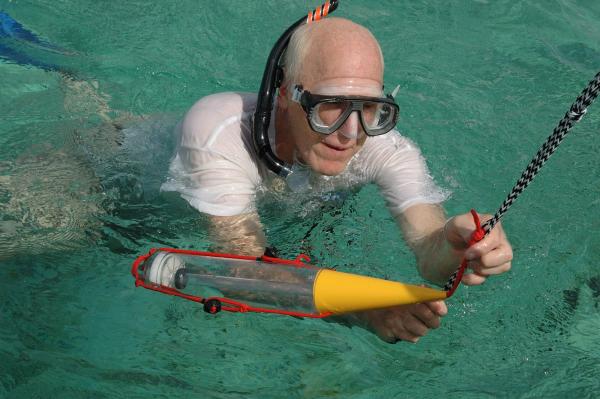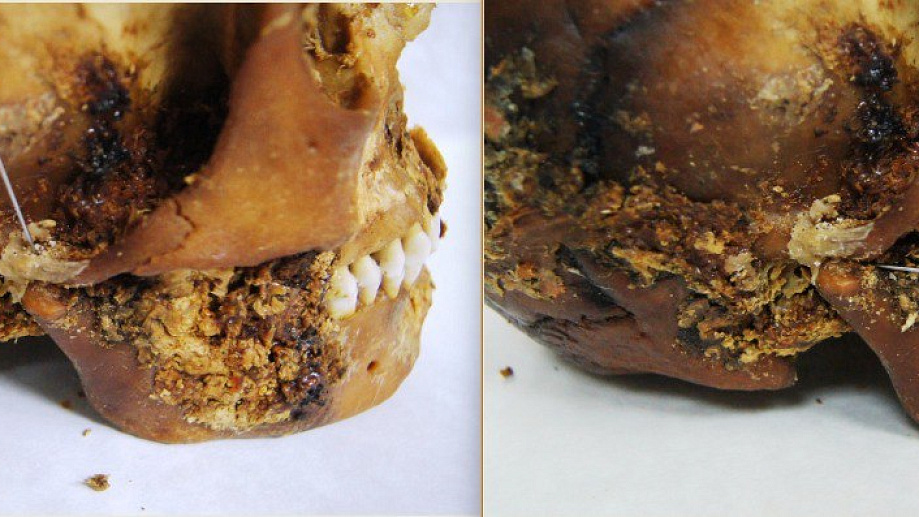
Divers Scoop Up Whale Poop to Save Species

Get the world’s most fascinating discoveries delivered straight to your inbox.
You are now subscribed
Your newsletter sign-up was successful
Want to add more newsletters?

Delivered Daily
Daily Newsletter
Sign up for the latest discoveries, groundbreaking research and fascinating breakthroughs that impact you and the wider world direct to your inbox.

Once a week
Life's Little Mysteries
Feed your curiosity with an exclusive mystery every week, solved with science and delivered direct to your inbox before it's seen anywhere else.

Once a week
How It Works
Sign up to our free science & technology newsletter for your weekly fix of fascinating articles, quick quizzes, amazing images, and more

Delivered daily
Space.com Newsletter
Breaking space news, the latest updates on rocket launches, skywatching events and more!

Once a month
Watch This Space
Sign up to our monthly entertainment newsletter to keep up with all our coverage of the latest sci-fi and space movies, tv shows, games and books.

Once a week
Night Sky This Week
Discover this week's must-see night sky events, moon phases, and stunning astrophotos. Sign up for our skywatching newsletter and explore the universe with us!
Join the club
Get full access to premium articles, exclusive features and a growing list of member rewards.
Diving in the waters off the Bahamas sounds idyllic, but a group of scientists isn't doing it to relax. They're on a mission to learn more about endangered whales, and they're doing it by collecting whale poop.
The team of snorkeling scientists is hoping to use whales' feces to learn how noise pollution in the area has affected these massive mammals. Their work is being funded by the U.S. Navy, which for years has supported this kind of research into the environmental effects of its underwater activities.
Ocean noise could be a hidden danger to marine creatures. "Pings" from military and fishing sonar, the low-frequency drone of constant shipping traffic, the booming of offshore seismic exploration and the sounds of recreational boat traffic all make the ocean much noisier than it once was. For marine species that rely on sound to hunt and communicate, this background noise could be making it harder to find food or each other and could raise stress levels, affecting their health or reproduction.
But why whale poop? Research has shown reproductive and stress hormones can be measured from it ? the first proven method for measuring stress in a free-living whale.
The researchers plan first to measure hormones from a relatively undisturbed population of whales, to establish baseline hormone levels. Then the team will measure stress hormone levels in animals that have been exposed to underwater sounds.
Collecting the poop samples may be tricky. The divers will be towed on a rope until they spot a sample. Then they will free-dive no scuba gear to suck up the whale poop in "slurp guns" and turkey basters. To hone the craft, the team has practiced collecting imaginary fecal samples.
"Our gear seems to be working well; now we just need to find some whales," the researchers, from the New England Aquarium, wrote on their mission blog.
Get the world’s most fascinating discoveries delivered straight to your inbox.
The water in the area is so clear, the researchers said, that they'd be able to spot whales 100 feet (30 meters) beneath their boat.
The Bahamas location was selected because it's near a Navy underwater testing center. The research team hopes to measure fecal stress hormone levels from beaked whales and sperm whales to try to determine whether the noise disturbance from Navy exercises is having any effect on them.
 Live Science Plus
Live Science Plus










